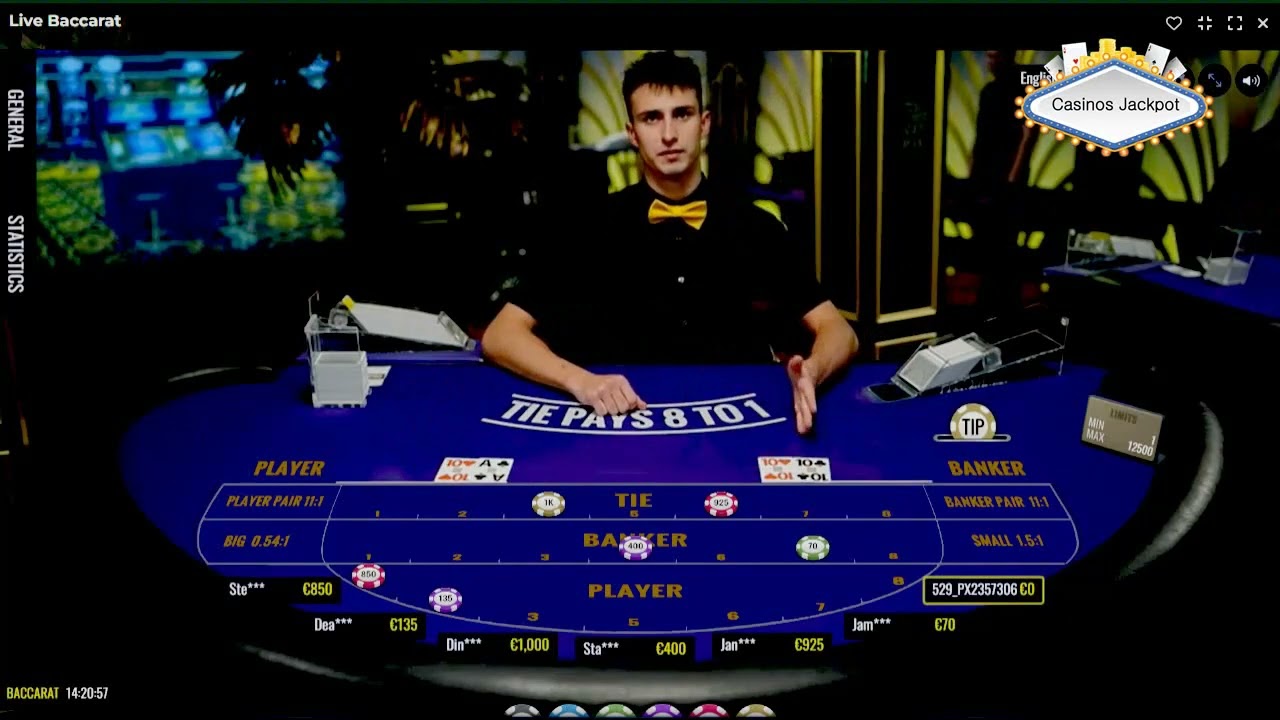The allure of the jackpot is incredibly powerful that individuals across different backgrounds find themselves captivated by it. A strong allure that is hard to resist comes from the chance of winning a large sum of money through gaming at casinos, participating in lotteries, or other games of chance. For millions of people around the world, the idea of becoming wealthy and financially independent in an instant holds great appeal. Numerous psychological factors contribute to the jackpot's allure.
Main Points
- The allure of the jackpot: The thrill of winning big entices people because of the potential for life-changing rewards.The dopamine-driven jackpot effect: Our brain's reaction to potential gains, such as winning a jackpot, is driven by the release of dopamine, creating a sense of pleasure and drive.The role of risk and reward: The attraction to jackpots stems from the combination of risk and potential reward, engaging the brain’s reward circuits.Optimism and hope in jackpot pursuits: The chance of a big win influences our outlook, fostering feelings of hope and positive expectation for the future.Social and cultural influences: The jackpot’s appeal to us is shaped by societal values, cultural expectations, and peer pressure.

The possibility of striking it rich offers the promise of a thrilling new life beyond the monotony of daily life. Lots of individuals are driven to pursue the ultimate jackpot prize because they find great resonance in the idea of taking a chance & possibly coming out on top. The thrill of making a big wager or the suspense of anticipating the outcome are just two examples of the many ways in which jackpots attract us because they tap into the natural human desire for thrills and adventures. Dopamine's Role in Anticipating Wins. Dopamine plays a major role in our draw to jackpots, which is why jackpots are irresistible.
A neurotransmitter called dopamine is produced in reaction to enjoyable moments like eating delicious food, taking part in enjoyable activities, and yes, winning big. Dopamine is essential in the brain's reward circuits. Our brains release dopamine when we expect a possible reward, like winning the lottery, which feels great and makes us want to go after the reward even more. The dopamine-driven pursuit of huge wins. We are strongly motivated to seek out big wins by the strong psychological pull that is created when dopamine is released in response to potential gains.

Our natural desire for risk and reward is closely tied to the the lottery's attraction. The chance of a huge win is a risky proposition that appeals to our deep need for risk and excitement. Our attraction to jackpots is driven by the risk and excitement that comes with chasing large wins. Many people find great resonance in the idea of taking a risk and possibly earning huge rewards, which pushes them to gamble in the hopes of claiming the grand prize. Humankind’s history as early humans may also be used to explain the role that risk and reward play in attracting us to jackpots.
Taking chances has been crucial to human survival throughout our evolutionary past because it often determined gathering food and going without. This behavior became beneficial in securing resources, it is ingrained in our brains to look for opportunities with high rewards. This natural inclination for risk still shapes our actions today, causing us to be drawn to jackpots and urging us to take more risks in the hopes of striking it rich.
Risk and reward drive our pull to jackpots, which connects with our need for independence and autonomy. The chance to become wealthy presents an opportunity for limitless living and on one's own terms. The prospect of taking a chance and perhaps landing huge rewards appeals to our innate need for independence and self-determination, which motivates us to go for big wins in the quest for financial independence. Our attraction to jackpots is largely driven by the optimism and hope that big wins inspire. The possibility of striking it rich sparks hope for a better future, which fuels our ambition and inspires us to aim for large wins.

It is hard to ignore the sense of hope that comes from the thought that one fortunate event has the potential to improve our lives. The possibility of vast wealth draws on our innate yearning for optimism & hope, encouraging us to take chances in the quest for financial security and financial stability. The psychology of optimism and hope also has a significant impact on how we think about going after big victories.
Our optimism is fueled and we are motivated to pursue big wins despite the odds when we have the possibility of winning the jackpot. This sense of hope and excitement can create addiction-like behaviors. We gamble for financial freedom because we have an unyielding optimism that one lucky win could improve our lot in life. The role optimism plays in our mindset when it comes to going for big wins also relates to our innate need to be in charge of our life choices. Our optimism is fueled by the possibility of striking it rich, which drives us to gamble in the search for financial freedom and freedom from financial constraints. We can't ignore the power of social and cultural pressures on our jackpot fascination.
We are bombarded with messages that strengthen the allure of getting rich, from the popular media's portrayals of overnight millionaires to societal norms to achieve financial wealth. Our attitudes toward chasing large wins are shaped by the ubiquitous influence of social and cultural factors, which fuel our jackpot addiction and spur us to take chances in the pursuit of money. Social pressure and social norms are just two more examples of how cultural pressures shape our craving for jackpots. Seeking large victories is regarded as an desirable, glamorous, and exciting pursuit in various social groups.
Individuals might gamble more in an effort to win approval or impress others by feeling pressured to keep up with friends or coworkers who have made money through gambling. Our innate need for status is further evidenced by the influence of social and cultural factors on our attraction to jackpots. The reason we crave jackpots and pushes us to gamble in the hopes of winning big is the possibility of becoming wealthy and well-recognized, which can boost our status. The Addictive Nature of Jackpot Pursuits. The dopamine-driven reaction to prospective rewards can set off an addictive cycle that pushes people to keep gambling in the hopes of hitting it big, frequently at great personal expense.
The act of chasing losses can result in a detrimental cycle that can devastate someone's finances and overall happiness. The Dark Side of the Jackpot: Mental Health and Relationships. Pursuing big wins can have detrimental effects on relationships and mental health in addition to financial losses. Gambling addicts frequently struggle with mounting debt & other financial difficulties, which can create anxiety, depression, and feelings of despair.
In addition, chasing jackpots can damage personal relationships, leading to isolation & loneliness. The necessity of Support & Awareness. The dangers of going after large winnings make it clear that people who may be experiencing compulsive gambling behavior need compassion and assistance.
It is imperative that society recognize the risks of gambling and provide help to individuals who may be at risk of developing addictive behaviors. By doing this, we can work towards a safer environment and more encouraging for people who might be having trouble the temptation of jackpots. Create healthy gambling habits to help people manage the emotional impact of jackpot chasing.
Limiting the amount of time and money spent on gambling can help people stay away from compulsive behavior patterns and lessen the risks involved in chasing large wins. For those who may be battling addictive behaviors linked to chasing jackpots, seeking support from friends, family, or professional counselors best live casinos can be hugely beneficial. People can prevent themselves from falling into addiction by adopting healthier coping strategies for handling stress and anxiety.
People can discover healthy ways to manage their stress without turning to high-risk gambling activities by staying active, practicing mindfulness, or finding enjoyable hobbies and pastimes. In conclusion, individuals of all backgrounds are drawn to the jackpot because of its irresistible attraction. Our attraction to big wins is driven by a variety of psychological factors, ranging from the release of dopamine in reaction to possible rewards to our innate desire for risk and reward. However, in order to prevent developing compulsive gambling behavior patterns, people should be aware of the possible risks involved in jackpot pursuits and adopt healthy habits for managing the emotional effects.
People can experience the excitement of chasing large wins without succumbing to addiction by comprehending the psychology underlying our attraction to jackpots & cultivating responsible, healthy gambling habits.
FAQs
What is the psychology behind the attraction to winning big jackpots?
Our interest in large jackpots stems from the brain's reward system. When we think about winning big, our brains release dopamine, a neurotransmitter associated with pleasure and reward-seeking. This dopamine release makes us feel good and anticipation, which can be highly addictive.
Why do people continue to play for jackpots even after experiencing losses?
Gamblers keep playing despite losses because of the effect of near-miss events. When players almost win, it triggers a surge of dopamine just like that of a real win. This near-miss experience fuels hope and encourage continued play, despite previous losses.
What role does social influence play in the attraction to winning big jackpots?
Social factors are key in the attraction to winning big jackpots. The visibility of jackpot winners in the public eye and among friends builds social validation, leading individuals to think winning is possible and worth pursuing. Additionally, the joy and celebration around big wins can motivate others to participate in similar activities.
What are the downsides of craving jackpots?
The attraction to winning big jackpots can have negative consequences, particularly when gambling becomes addictive. Excessive gambling in pursuit of jackpots can result in financial strain, relationship problems, and mental health issues. Additionally, the craving for jackpots can create false hope and a distorted perception of probability.
How can individuals manage their attraction to winning big jackpots in a healthy way?
You can keep jackpot cravings under control with smart strategies by limiting time and money spent on gambling, practicing responsible gaming, and seeking support if they suspect their interest is turning into an issue. It's important to keep gambling in perspective and enjoy it for fun over the pursuit of large wins.